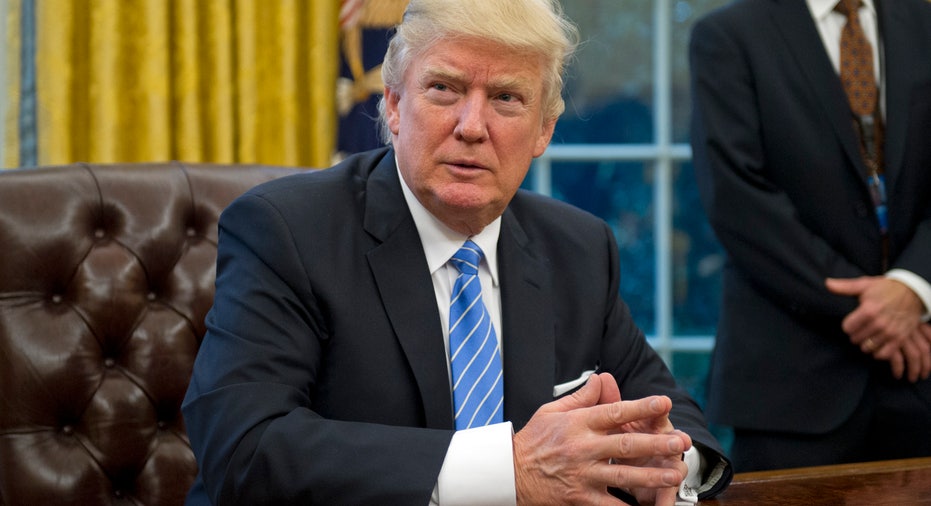White House Aims to Send Tax-Plan Outline to Congress Within Weeks

President Donald Trump plans to send Congress an outline for a comprehensive plan to overhaul the tax code for individuals and businesses by the end of the month, a move the White House said is intended to kick-start negotiations on the major legislative effort.
Mr. Trump, in a meeting Thursday with airline executives, said his goal of lowering taxes for businesses was moving "ahead of schedule."
"Lowering the overall tax burden on American business is big league," Mr. Trump said. "And we're going to be announcing something I would say over the next two or three weeks that will be phenomenal in terms of tax and developing our aviation infrastructure."
During the presidential campaign, Mr. Trump proposed a multi-trillion-dollar tax cut that would lower the corporate tax rate to 15%, cut individual tax rates, and repeal the estate tax. He also proposed expanded tax breaks for child care.
White House press secretary Sean Spicer said Thursday the president's tax overhaul would be "something that's going to spur economic growth" and "recognize the need to give so many working Americans the relief that they need."
Mr. Spicer said Mr. Trump is pursuing the most significant tax overhaul in more than three decades.
"It's going to be a comprehensive plan, something we haven't seen since 1986," he said.
The tax code hasn't been revamped since 1986, when President Ronald Reagan worked with a divided Congress to broaden the tax base and lower marginal tax rates. Attempts by lawmakers in both parties since then have failed, due to the difficult politics of trade-offs and partisan disagreement.
White House officials have been discussing tax issues with House and Senate Republicans, but Thursday's announcement seemed to catch GOP officials by surprise.
Republicans have said repeatedly that they want to work on health care legislation before turning to taxes, partly for procedural reasons. That said, they have a lot of work to do on both the broad strokes and the details of tax policy, and they can try to iron out those differences while they are working on a health care plan.
House Republicans have been pursuing their own tax plan and had hoped for the White House to back their efforts this week. Their proposal has been criticized by others in the Republican Party and figures within the business community in recent weeks over a feature called "border adjustment" that taxes imports and exempts exports.
A senior Republican congressional aide said GOP leaders expect any comprehensive plan to address individual, business and international tax issues, though they are unsure precisely what will be in the White House plan.
Mr. Trump's campaign plan had some important differences with House Republicans' approach. He wanted a deeper corporate tax rate cut, a bigger rate cut for businesses that pay through their owners' individual tax and a tighter limit on individual deductions, including charitable contributions. Mr. Trump has made ambivalent statements on border adjustment; the White House now says it is one option.
As written, his plan also would have raised taxes on millions of middle-income households, though campaign officials said they would ensure that wouldn't happen in the ultimate legislation.
Mr. Trump was also willing to incur significant budget deficits from his tax plan, even after accounting for economic growth. That could prove challenging both within the Republican Party and in the Senate, where deficit-increasing plans may not comply with budget procedures that would be necessary for the GOP to advance a tax cut without Democrats.
Independent analyses during the campaign said Mr. Trump's tax plan would increase budget deficits by at least $4.4 trillion over a decade and wouldn't generate enough economic growth to pay for themselves.



















